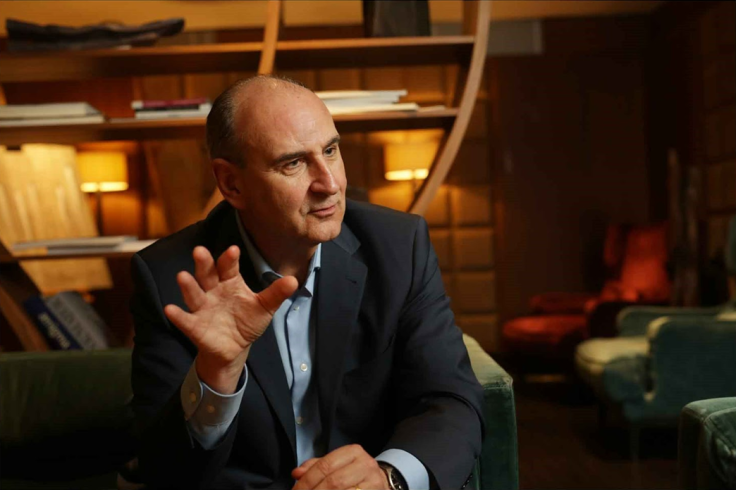Seven Intelligent Leadership Tips from the World's No. 1 Executive Coach

Leadership is often romanticised as charisma or the luck of birthright, but the demands of today's organisations suggest something more deliberate. Research from the International Coaching Federation shows the global market for executive coaching is projected to exceed $3.5 billion in the United States by 2025, while the Middle East is growing at close to 10% a year. Companies are investing not just in strategy but in the human capacity to guide and inspire. Few have shaped this field more visibly than John Mattone, ranked the world's number one executive coach six times in seven years by Global Gurus. His Intelligent Leadership framework distils decades of practice into seven principles that marry evidence with lived experience.
1. Lead from the Inside Out
Mattone argues that effective leadership begins with personal character. He differentiates between the "inner core"—values, emotional maturity—and the "outer core" of technical and managerial skills. "Great leaders are not born, they are made through intentional growth," he says, reflecting on years of coaching Fortune 500 executives.
A 2024 International Coaching Federation survey supports this perspective, finding that 67% of executives who invested in structured self-development reported measurable gains in employee engagement. For Mattone, self-awareness is not a soft skill but a foundation for decision-making and organisational trust.
2. Cultivate Authentic Vulnerability
Mattone calls it "the vulnerability decision": the conscious choice to be open about both strengths and limitations. "When a leader chooses vulnerability, they create space for others to grow alongside them," he explains.
This is more than sentiment. A 2025 Deloitte survey found teams led by managers who admit mistakes and invite feedback record 20% higher trust levels than those with more guarded leaders. By modelling vulnerability, executives normalise dialogue and create conditions for collective resilience.
3. Think Big and Challenge Limits
Economic uncertainty often tempts leaders to narrow their ambitions. Mattone advises the opposite: set bold, measurable objectives. He urges executives to "think different and think big," treating ambition as a disciplined practice.
Data from the U.S. Bureau of Economic Analysis show companies that invest in long-term strategic initiatives are 30% more likely to outperform their peers over five years. Mattone's guidance reflects that evidence: measured boldness can drive growth even in unpredictable markets.
4. Leverage Strengths While Confronting Gaps
Leaders often default to their natural strengths, but Mattone warns that unacknowledged weaknesses can stall progress. He encourages documenting both gifts and deficiencies and creating specific plans to address gaps.
An IBM Institute for Business Value study in 2024 found that teams using structured gap analysis and targeted development programs improved productivity by an average of 18%. Continuous improvement, Mattone argues, depends on facing one's limitations with clarity and purpose.
5. Execute with Precision and Passion
Vision means little without consistent delivery. Mattone advises leaders to act "with passion, precision, and pride," aligning strategy with everyday practices. "Leaders who act with consistent precision build trust and momentum," he notes.
According to McKinsey research, organisations with clear execution frameworks are twice as likely to meet key performance targets as those without them. Translating broad objectives into repeatable habits builds confidence and measurable results.
6. Stay Vigilant and Adaptable
Markets and technologies shift quickly, making vigilance critical. Mattone urges leaders to monitor both internal indicators, such as employee morale, and external factors, from economic trends to competitive moves.
A 2025 PwC survey of chief executives found that 72% ranked strategic adaptability among their top three leadership priorities. Sustained attention to emerging opportunities and risks allows organisations to pivot before challenges become crises.
7. Serve with a Duty Mindset
Mattone describes leadership as a responsibility to others rather than a personal reward. He encourages executives to act with what he calls a "duty mindset," inspiring through example rather than authority.
Gallup's 2024 State of the Global Workplace report shows that teams led by managers who emphasise service and responsibility post employee engagement scores 23% higher than the global average. By centring responsibility, leaders build cultures where ethical standards and long-term value guide decision-making.
Final Reflections on Intelligent Leadership
John Mattone's seven principles are not a checklist for quick wins but a call to disciplined practice. They combine personal reflection, measurable outcomes, and a recognition that leadership is both moral and strategic work. As global demand for executive coaching grows, from the $3.5 billion U.S. market to rapidly expanding programs in the Middle East, his guidance offers a grounded path for leaders facing complex, unpredictable futures. These tips suggest that true influence begins with character, grows through vulnerability and bold thinking, and endures when leaders view their role as a duty to those they serve.
© Copyright 2023 IBTimes AE. All rights reserved.





















